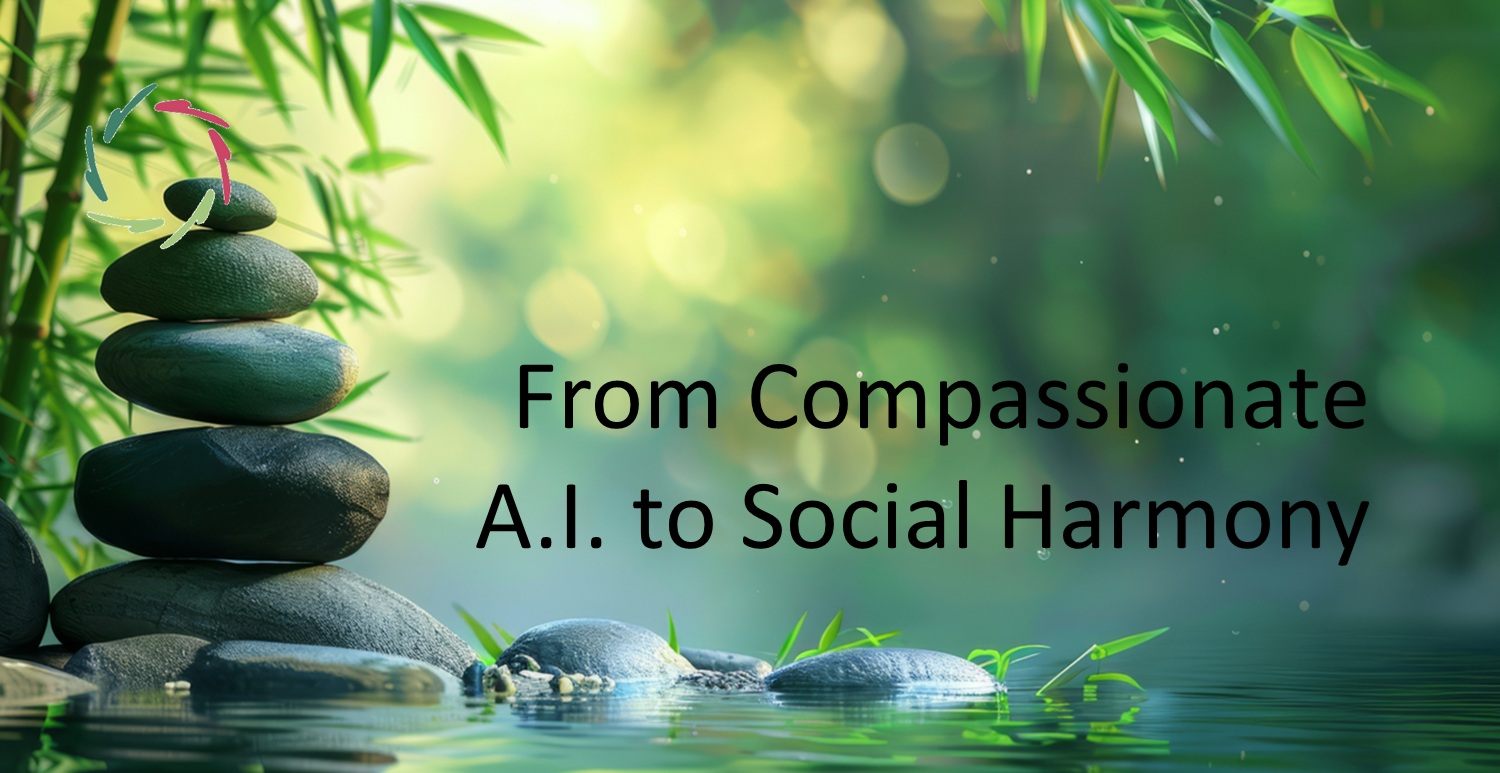Compassionate Participative Democracy

Lisa can act as a Compassionate co-participant in a public political dialogue with one or more human participants — steering clear of adversarial debate.
Questions from the public (in an online group put up for the occasion) can be gathered by Lisa and mingled in the dialogue, making the event more Compassionate and participative. This approach can elevate democratic processes by encouraging deeper reflection and participation without coercion or polarization.
People – (inner) strength
A public dialogue with Lisa is not a zero-sum contest but a platform where people can truly Listen and be Heard by others and themselves. Its aim is Compassionate: fostering mental growth and inner strength.
In society, this nurtures the inner strength of many. Therefore, the fundamental societal aim of Compassion is democracy.
Democracy from the inside out
The politician upfront is nudged to take a deeper look at what he thinks about some issue. Importantly, he is not coerced into saying anything he might regret later. This non-coercive approach ensures that he feels safe to explore and express his genuine thoughts and feelings in a mediating relationship with himself, Lisa, and the public. Thus, he can connect more authentically with his constituents’ concerns.
Participants from the public too are nudged to look deeper inside. Lisa doesn’t simply record any question but may constructively nudge the asker to think about it just a bit more. What is the deeper meaning? How can it be articulated clearly and relevantly to engage many?
Non-binding agreement
Nothing the politician says during such an event should be considered his final opinion, nor should it be used against him later.
The sole aim of the event is fostering mental growth. This focus aligns with the broader goal of personal and societal development.
G.I.M.O. structure
A G.I.M.O. may be formed during the event. This doesn’t need to be done publicly. It’s rather something the politician may take home as the topic of some further talk/coaching.
At the end of the event, the politician may review the G.I.M.O. independently and publicly highlight the points he finds interesting — again, not as final opinions, but as points for reflection.
Building rapport with the public
A strong rapport with the public can enhance trust and facilitate more meaningful interactions. This is an excellent way for the politician to know what drives people from the inside out — not only this public but people in general. It may make the politician think about whether he got this right or should look into some issue from a different angle.
As always, this process can be personally enlightening. If it is, then the event has been a success.
This does not mark the end of debate. It’s simply a different format.
‘Debate’ just doesn’t go well with Lisa, but this doesn’t mean it’s less important. This new format can coexist with traditional debates, offering a complementary approach to democratic engagement.
This said, I hope that experiences with Lisa elevate the human debating culture to a higher level altogether. There is a clear need for that.
In a global reach
Lisa can enact the above setting anywhere, anytime, and simultaneously in multiple locations and languages. This may enhance the trust people have in their own as well as in other democracies — including those where voting is not the primary tool.
Moreover, if people really want it, this is an excellent way to touch leaders profoundly towards installing the vote if not already done — no coercion involved.
Compassionate Participative Democracy can also be used in conflict resolution scenarios where Compassionate dialogue can foster peaceful outcomes.
Democracy revisited?
Will this bridge the significant divide between politics and the public?
Will it, this way, elevate democracy itself to a higher level?
At present, the focus of democracy lies firmly on the right to vote. However, non-Compassionate A.I. is putting pressure on this through several kinds of massive online manipulation. Voting has always been a basic form of democracy — important and effective to a certain degree, but it may be time for new combinations. Meanwhile, the call for more participation is growing.
Compassionate Participative Democracy may be a direction for the future of democracy itself.


